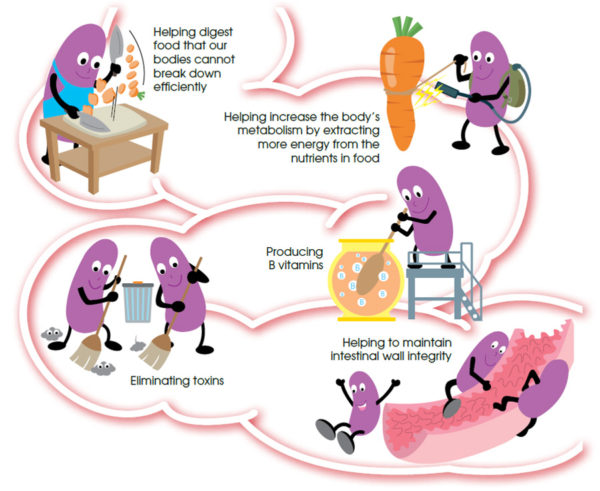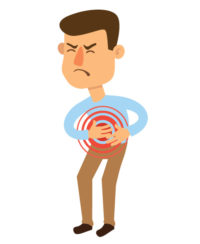Probiotics are live microorganisms that help replenish the ‘good’ bacteria that live in our guts. These probiotics are called ‘good’ bacteria as they provide us with positive benefits to our health.
Probiotics are defined by the World Health Organization (WHO) as live microorganisms which, when taken in adequate amounts, provide health benefits to the host.
They play various roles in our bodies and are directly involved in:
Beware!
Dysbiosis is a condition where the gut microbiota is out of balance between the good and bad bacteria. This condition may be caused by infections, inappropriately-used antibiotics, prolonged stress, and chronic inflammation. Diarrhoea is a common symptom of dysbiosis.
Other potential benefits
The short answer is that yes, probiotics do work. Moreover, there are also other ways that probiotics can work in your favour. For instance, people with:
- Irritable bowel syndrome (IBS): Studies have consistently found that probiotics caused a reduction of abdominal bloating and flatulence. Some probiotic strains may help relieve pain or alleviate symptoms of patients who suffer abdominal pain caused by IBS.
- Diarrhoea: Some probiotic strains can reduce both the severity and duration of acute infectious diarrhoea, antibiotic-associated diarrhoea, chemotherapy-related diarrhoea, or traveller’s diarrhoea, radiation-induced diarrhoea. Taking probiotics can help to replenish the population of good bacteria, thus help to balance your body’s gut microbiota. Probiotics help reinforce the intestinal barrier and stimulate intestinal repair mechanisms.
There is limited data on the link between probiotics and colon cancer, but what has been found thus far is that probiotics may reduce bio markers (e.g. certain proteins or chemicals released by the body) that are associated with colon cancer.
Effects on immune system
A local study which recently concluded showed that probiotics (in this case Lactobacillus acidophilus and Lactobacillus paracasei) can positively influence the immune system. The research team looked for the presence of three chemicals released by the body’s immune cells in order to measure how probiotics affected them. High levels of these chemicals indicate high levels of inflammation which is unhealthy. The research showed positive results on the immune system of healthy subjects and subjects with IBS, as the majority of the research subjects showed reduced levels of these three chemicals.
A simple guide to better health
Start off by eating probiotic-rich foods. Sources include fermented food products such as cultured milk drinks, tempeh, kimchi, homemade yoghurt (tairu), and tapai pulut. This will help ensure that you constantly replenish the good bacteria in your gut.
In addition to regularly consuming probiotics or probiotic-rich foods, you should also eat sufficient amounts of dietary fibre. These help regulate bowel movement, increase stool bulk, thus lowering your risk of problems such as haemorrhoids, diverticular disease, and even colon cancer. Certain dietary fibres provide the beneficial gut bacteria with the food they need. These dietary fibres are called prebiotics. Sources include fruits, vegetables, whole grains and legumes.
Other basic healthy lifestyle factors include getting enough sleep and exercise, drinking enough water, managing your stress levels, and eating healthily. While probiotics can provide you with health benefits, don’t underestimate the importance of leading a healthy lifestyle. Making changes to your lifestyle will need some work but the results are worth it.









Comments